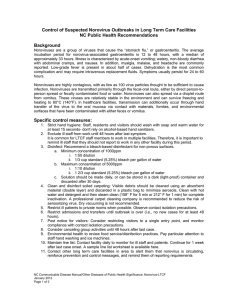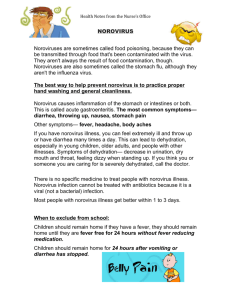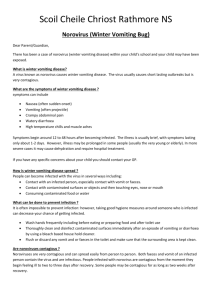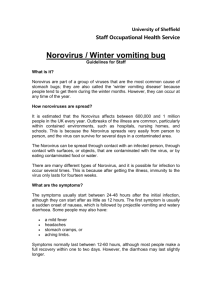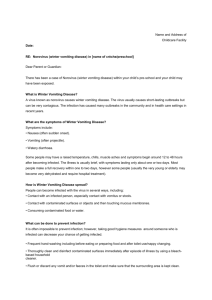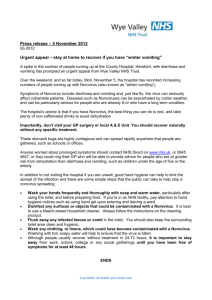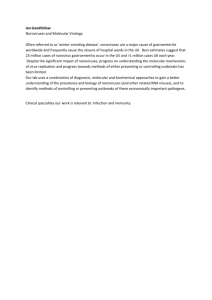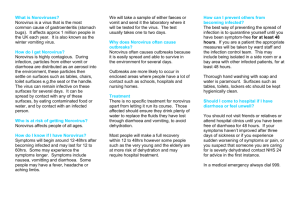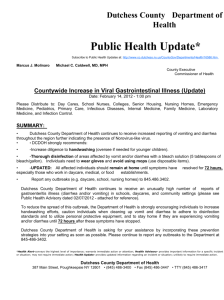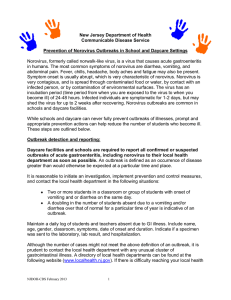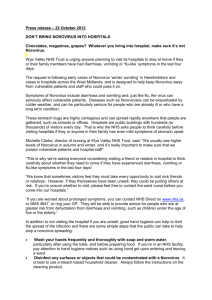Handout – Factsheet for parents
advertisement
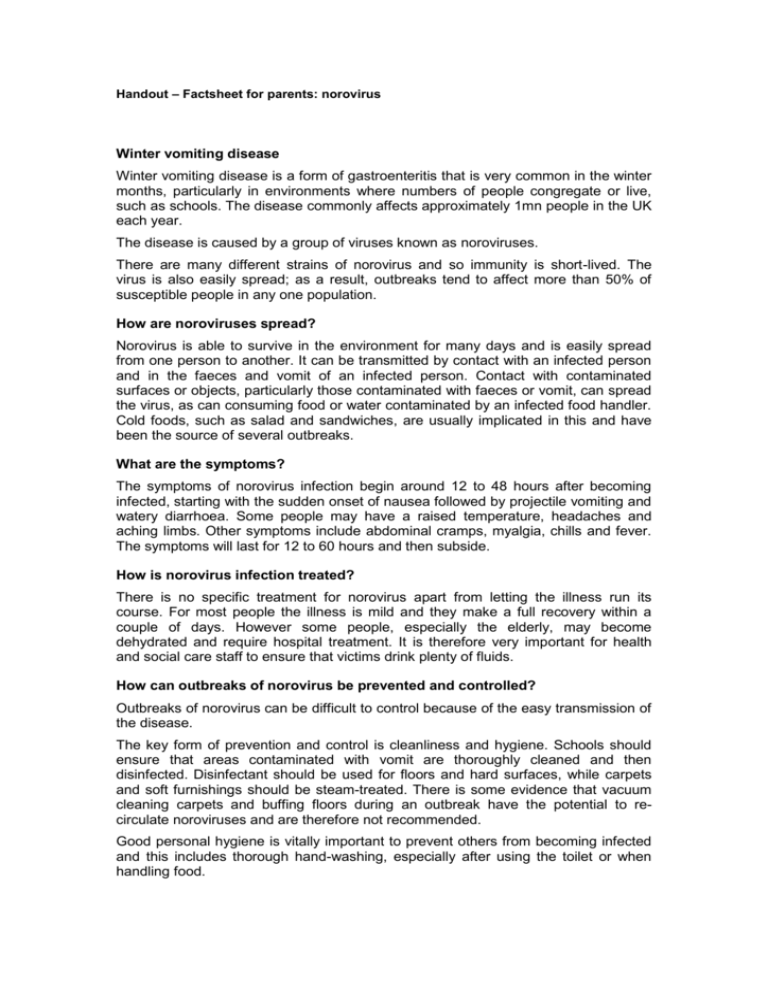
Handout – Factsheet for parents: norovirus Winter vomiting disease Winter vomiting disease is a form of gastroenteritis that is very common in the winter months, particularly in environments where numbers of people congregate or live, such as schools. The disease commonly affects approximately 1mn people in the UK each year. The disease is caused by a group of viruses known as noroviruses. There are many different strains of norovirus and so immunity is short-lived. The virus is also easily spread; as a result, outbreaks tend to affect more than 50% of susceptible people in any one population. How are noroviruses spread? Norovirus is able to survive in the environment for many days and is easily spread from one person to another. It can be transmitted by contact with an infected person and in the faeces and vomit of an infected person. Contact with contaminated surfaces or objects, particularly those contaminated with faeces or vomit, can spread the virus, as can consuming food or water contaminated by an infected food handler. Cold foods, such as salad and sandwiches, are usually implicated in this and have been the source of several outbreaks. What are the symptoms? The symptoms of norovirus infection begin around 12 to 48 hours after becoming infected, starting with the sudden onset of nausea followed by projectile vomiting and watery diarrhoea. Some people may have a raised temperature, headaches and aching limbs. Other symptoms include abdominal cramps, myalgia, chills and fever. The symptoms will last for 12 to 60 hours and then subside. How is norovirus infection treated? There is no specific treatment for norovirus apart from letting the illness run its course. For most people the illness is mild and they make a full recovery within a couple of days. However some people, especially the elderly, may become dehydrated and require hospital treatment. It is therefore very important for health and social care staff to ensure that victims drink plenty of fluids. How can outbreaks of norovirus be prevented and controlled? Outbreaks of norovirus can be difficult to control because of the easy transmission of the disease. The key form of prevention and control is cleanliness and hygiene. Schools should ensure that areas contaminated with vomit are thoroughly cleaned and then disinfected. Disinfectant should be used for floors and hard surfaces, while carpets and soft furnishings should be steam-treated. There is some evidence that vacuum cleaning carpets and buffing floors during an outbreak have the potential to recirculate noroviruses and are therefore not recommended. Good personal hygiene is vitally important to prevent others from becoming infected and this includes thorough hand-washing, especially after using the toilet or when handling food. Pupils who are infected should be excluded from school for 48 hours after their symptoms have ceased. Affected staff should be excluded from duty for 48 hours after their last symptoms, and should be excluded again if they subsequently relapse. Further information Further information about norovirus and other infectious diseases can be found on the NHS Choices website – http://www.nhs.uk/Pages/HomePage.aspx Forum Business Media Ltd 2015
